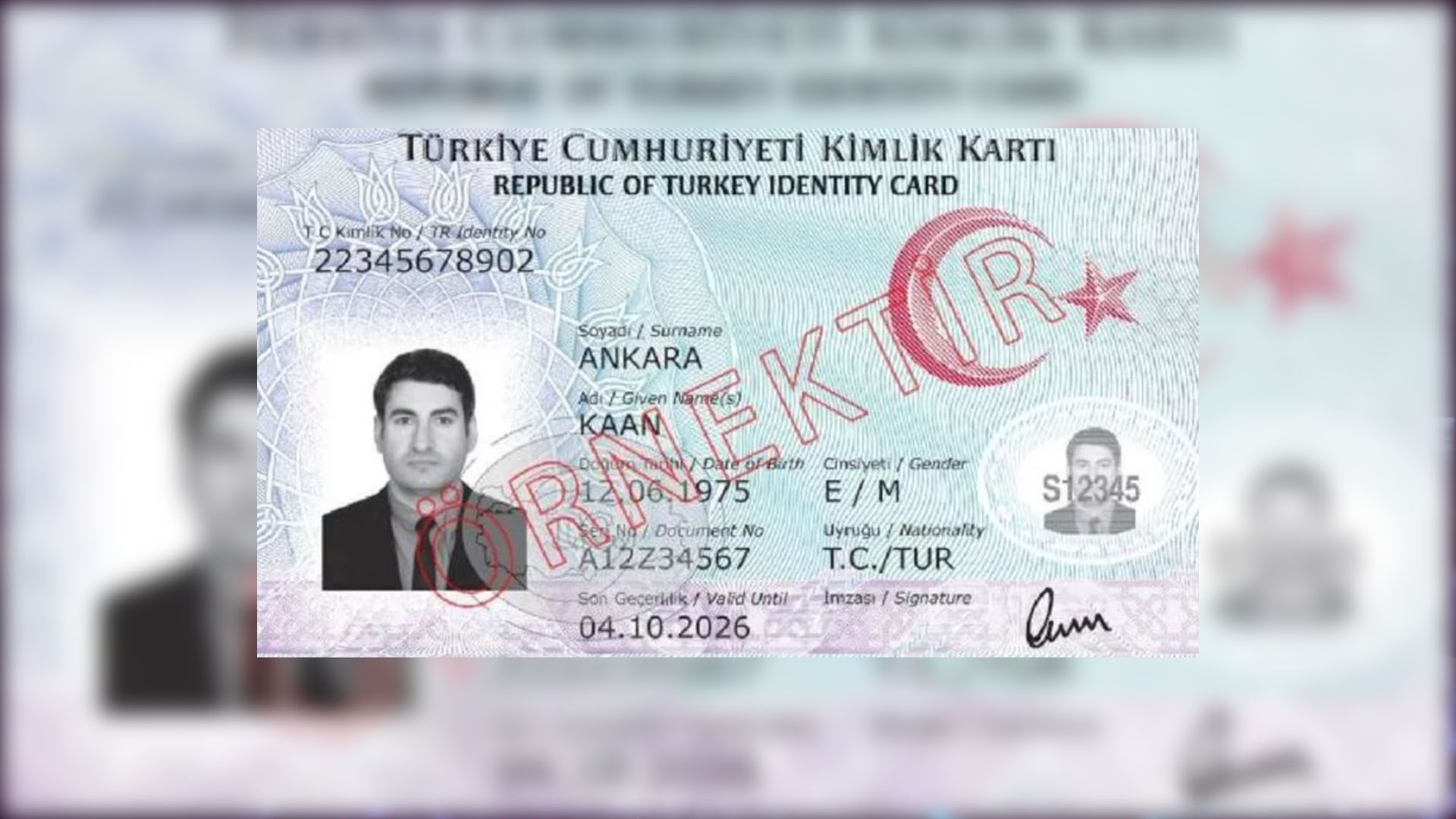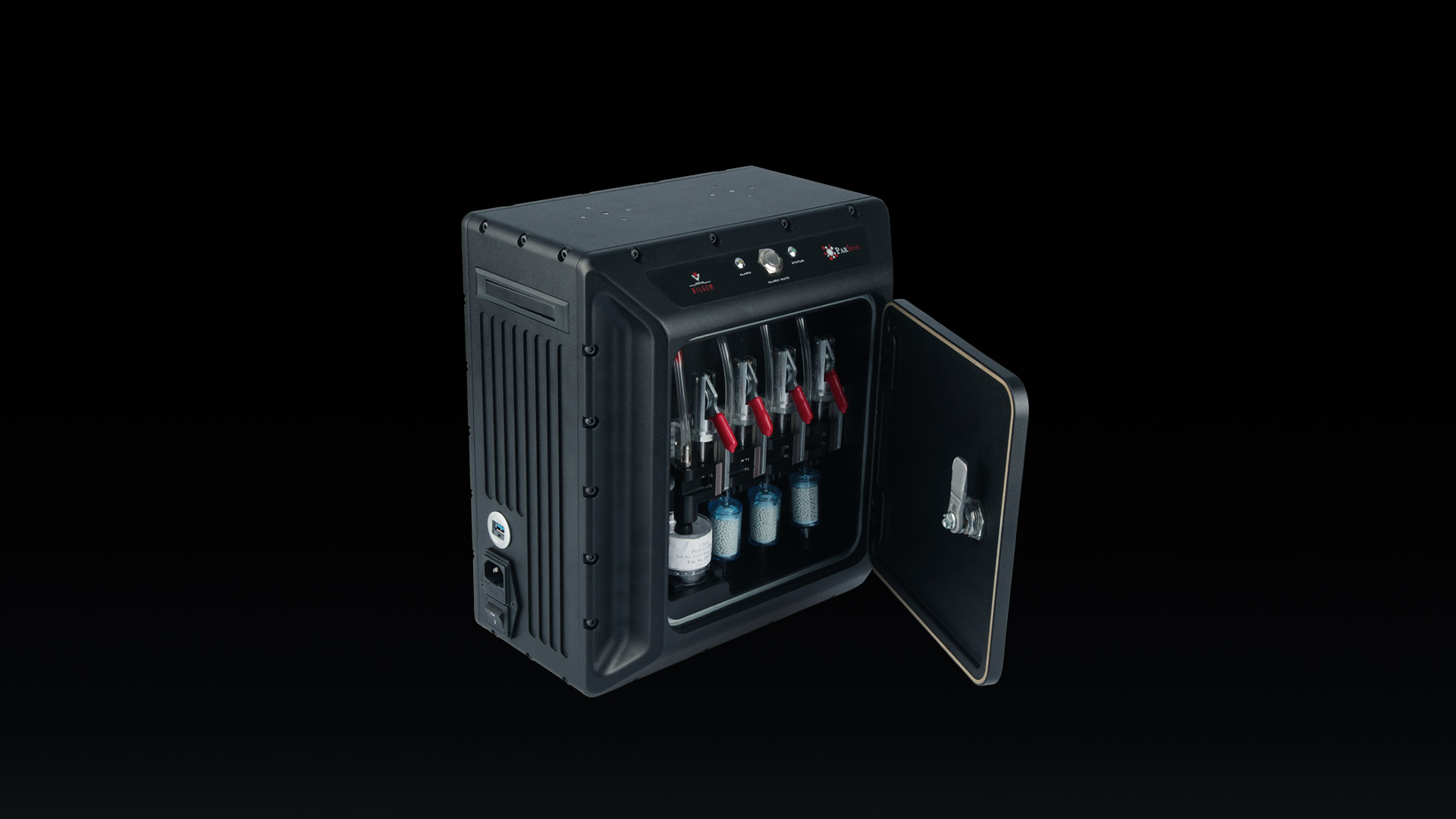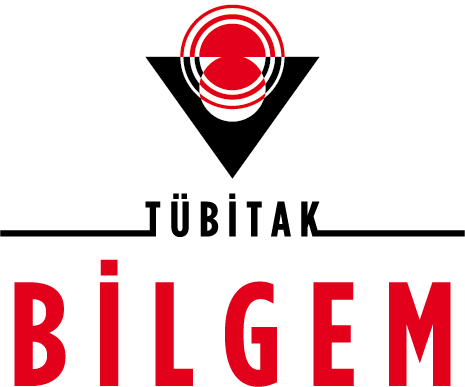UEKAE
Projects
The OngoingProjects

Digital Currency Project
- Development of a national CBDC system (Digital Turkish Lira).
- Following and contributing to the academic open literature on blockchain and digital currency, examining and analyzing the technological infrastructures in their practical applications.
- Digital currency systems design.
- Security and privacy analysis of blockchain and digital currency technologies.

Digital Identity Project

TR Identity Card Dissemination Project

Card Management System Development and Technology Transfer Project

Fuel Marker Control Devices and Inspection System (National Marker and Company Marker)

National Public Key Infrastructure Project

Message and Document Distribution System / MEDAS-3

Smart Card Project

Bioaerosol Detection System Project

Safir Mail (KurumNet)
The Other OngoingProjects
Today, network systems are gradually merging into a single network technology. In the future, it is predicted that network systems will be based on the concept of "Everything Over IP", which is based on the transfer of all kinds of data traffic entirely over IP networks.
In this context, IP Cryptographic Devices (IPCD) developed within the scope of the project provide secure communication of private or confidential networks in IP communication at high speeds over unprotected networks. In this way, many types of physical lines (wired, wireless, satellite and hybrid networks) and many applications are protected with a single technology. IP Crypto System ensures data confidentiality, authenticity and data integrity of these networks.
The IP Crypto System consists of IP Cryptographic Devices that provide secure communication and connect confidential networks, and a Management Center (GYM) that provides remote key and device management. From the 2000s until today, various IP Cryptographic Devices (from 34Mbps to 9 Gbps) have been developed at various speeds for different needs, and the development of devices suitable for new needs continues.
IP Crypto Systems, whose software and hardware are completely nationally designed, play a critical role in the security of the information infrastructure of many critical military and public institutions, especially the TAF networks.
Development of monitoring and analysis infrastructure of crypto money systems.
With the TRNC e-Identity Card Management and Certification Center Project, it is aimed to design, develop, install and provide maintenance support for the e-Identity Card Management System and TRNC Certification Center specific to the Turkish Republic of Northern Cyprus (TRNC), and to install and provide maintenance support for the identity card application unit in the foreign representations of the Turkish Republic of Northern Cyprus.
The aforementioned project outputs have been successfully used by the TRNC Ministry of Interior since 2015 and by foreign representatives since 2017.
KEMENT Crypto Module was developed by TÜBİTAK BİLGEM to ensure the security of communication in the Ammunition Data Network System. The module is used by integrating the terminals on the Aircraft (F-16) and Munitions (SOM).
The KEMENT Crypto Module has a crypto protocol that supports time-sharing/frequency hopping Tactical Data Network Systems and has received COMSEC approval for SECRET confidentiality level secure communication.
IFF M5K-IIM Crypto Unit was developed by TÜBİTAK BİLGEM to ensure communication and communication security in IFF Mode 4/5 Systems by using NATO Mode 4/5 and National Mode 4/5 crypto algorithms. The M5K-IIM Crypto Unit has been developed to be compatible with IFF System Interrogator/Responder devices. M5K-IIM Crypto Units, which have received COMSEC and TEMPEST approval, have been developed in accordance with EMI/EMC according to MIL-STD-461E standard and in accordance with MIL-STD-810G standard.
The M5K-IIM Cryptocurrency is used in the devices listed below:
- Short/Medium Range Interrogator
- Responder
- Long Range Interrogator
- Combined Interrogator/Answer
The technology transfer of the M5K-IIM Crypto Unit, whose development has been completed, has been made and is being used.
EKADAS-II System, creation of National Crypto Key Management Infrastructure, providing crypto key management capability for all crypto devices in TAF inventory; Integration with other management systems (NATO, ASELSAN, BİLGEM) has been developed to provide secure, fast, uninterrupted, widespread, scalable key management.
The important features of the system are given below:
- Secure distribution of all kinds of sensitive information (crypto key –symmetric/symmetric-certificate, software, code, password, firmware, configuration/management information, file, message, etc.)
- High quality key generation (with a combination of quantum and traditional RSU techniques)
- Transition from Key Management System (EKMS) concept to Key Management Infrastructure (KMI) concept
- Supporting complex key management of next-generation crypto devices
- Distribution and accounting of crypto materials by inventory of crypto devices
- Common Key Management Framework (OAYF)
The purpose of the New Type Submarine (NTS) Message Operating System Project is to develop the Message Operating System (MIS), which is a subsystem of the Integrated Maritime Communication System, which is planned to be deployed on six submarine ships to be built within the framework of the New Type Submarine Project Main Contract. In addition to hardware products such as Serial Channel Switching Device, Mechanical Switch Device and Energy Distribution Unit, ACP 127 Software Package, STANAG 5066 Protocol Software, STANAG 5066 Application Software, Data Backup Software and X.400 Messaging System are being developed.
The purpose of the LHD (Multi-Purpose Amphibious Assault Landing Ship) Message Operating System Project is to develop the Message Operating System (MIS), which will be deployed on the Multi-Purpose Amphibious Assault Landing Ship to be built by the shipyard within the framework of the LHD Project, and which has the ability to display, store and print formatted messages from the Communication System.
In addition to hardware products such as Synchronous Serial Channel Switching Device, Mechanical Switching Device and Energy Distribution Unit, ACP 127 Software Package, STANAG 5066 Protocol Software, STANAG 5066 Ed.3 Application Software, Data Backup Software and X.400 Messaging System are being developed.
Message and Document Distribution System (MEDAS), international X.400 e-mail standards, X.500 directory system standards, in order to meet TAF's messaging and document distribution needs in the most accurate, fastest and safest way in accordance with today's technology, It is a system established by addressing the needs of Public Key Infrastructure (AAA) Software to ensure service security and military messaging needs specified in STANAG 4406, titled (Military Message Handling System) published by NATO.
In 2005, the National Military Message Form (MAMF) and Address List Management Unit (ALYB) products were developed as prototypes by the TÜBİTAK BİLGEM UEKAE Messaging Systems Unit in order to develop the messaging interface used by end users to access the system at MEDAS. Related products have been used under the name MEDAS-2 since 2009.
Within the scope of the MEDAS Maintenance Repair Operation and Support Service Project, it is aimed that MAMF can run on Windows 7 or 10 Operating System, use the DSS (Directory System Server) software developed within the scope of MAMSIS, and provide maintenance and repair support for these products for 2 years. The outputs of the project, which started in 2018 and is aimed to be completed in 2020; MAMF (New Version), Directory System Server and ESYA Products (New Version).
Developing photodetector production processes, YİTAL has been Turkey's 4-quadrant photodetector provider since 2010. Photodetectors produced in YITAL offer higher responsiveness and wide dynamic range compared to similar products in the international market. Photodetector product tree with different features is available. Apart from the 4-quadrant photodetector, a laser approach sensor is also included in the product range.
Within the framework of the national production of x-band transceiver modules for radars used in Turkey, a unique 0.25 µm 5-metal SiGe BiCMOS technology was developed. With the HBT of this technology with a cut-off frequency of 120 GHz, it has reached the point where RF circuits for x-band applications can be produced in Turkey. The technology includes HBT, CMOS, Isolated NMOS, Varactor, Inductor, MiM capacitor and resistor elements. Work is underway to produce integrated circuits for radar applications with 0.25 µm 5-metal BiCMOS technology, which enables the production of digital, analog (CMOS) and RF (SiGe) integrated circuits in a single chip.
YITAL continues to work on designing and manufacturing multi-core original processors for special applications. A unique compiler and simulator software has been developed for the processor, which has its own machine language. An application development environment consisting of this support software and development board has been prepared. Within the scope of these studies, the 8051 processor, designed in YITAL and manufactured in YITAL with 5 metal 0.25 µm CMOS technology of YITAL, worked successfully. The first processor produced in Turkey was obtained. Production of the multi-core special processor with 8.5 million transistors continues.
The aim of the project is to develop a laser test station for optical side channel analysis on integrated circuits. The station to be developed will be used by the Common Criteria Test Center (OKTEM) affiliated to the Test and Evaluation Vice Presidency. It will be ensured that OKTEM can provide services to domestic and international test customers and perform laser tests, which is one of the requested test types. Thanks to this device, which can be used both inside and outside the organization, the reliability of the chips and electronic circuits produced will be tested. After the completion of the project, OKTEM Lab's needs in the field of laser testing will be met and a domestic product will be available in this field.
DIMDEG MIS is a system created by using ready-made commercial products together with the hardware and software to be developed. MIS will support ACP 127, STANAG 4406, STANAG 5066 and SMTP applications and standards. The system creates a network using different protocols over the radios and provides data communication between two or more points according to their distance and bandwidth, with different applications and methods, safe and reliable. In addition to preparing, receiving, sending and printing messages in different standards, archiving, analysis and reporting can be done within the system.
ADKG MİS Project is about the message operating system that will work as a subsystem of the Combat Management System. MIS will have the ability to display, store and print formatted/unformatted messages coming from the Communication System, as well as the ability to prepare formatted/unformatted messages and send them to the Communication System. MIS will support ACP 127, STANAG 4406, STANAG 5066 and SMTP applications and standards. Within the scope of this project, a message operating system will be given to 2 Offshore Patrol ships.
YITAL manufactures reading circuits that process the data coming from the photodetector and laser approach sensor with its 0.7 µm 2 metal CMOS technology.
YİTAL used its extensive experience in integrated circuit design and the knowledge of secure circuit design gained through the European Union's 6th Framework Program to design Turkey's first contactless National Smart Card integrated circuit and to have it manufactured and put into use abroad. Contact smart cards, of which different versions have been developed since 2011, have the internationally recognized EAL5+ Security Certificate. As the sole designer of Turkey's national identity smart cards, YİTAL continues to develop a dual interface (contact and contactless) national smart card.
Within the scope of wearable technologies, studies on the design of the reading circuit for blood pressure and heart rate data continue. The designs will be made abroad.
Design and operating system development studies continue within the scope of this project, which aims to securely store and transfer data via SD cards. The designs will be made abroad.
The Ongoing Projects
- Development of a national CDBC system (Digital Turkish Lira).
- Following and contributing to the academic open literature on blockchain and digital currency, examining and analyzing the technological infrastructures in their practical applications.
- Digital currency systems design.
- Security and privacy analysis of blockchain and digital currency technologies.
Today, network systems are gradually merging into a single network technology. In the future, it is predicted that network systems will be based on the concept of "Everything Over IP", which is based on the transfer of all kinds of data traffic entirely over IP networks.
In this context, IP Cryptographic Devices (IPCD) developed within the scope of the project provide secure communication of private or confidential networks in IP communication at high speeds over unprotected networks. In this way, many types of physical lines (wired, wireless, satellite and hybrid networks) and many applications are protected with a single technology. IP Crypto System ensures data confidentiality, authenticity and data integrity of these networks.
The IP Crypto System consists of IP Cryptographic Devices that provide secure communication and connect confidential networks, and a Management Center (GYM) that provides remote key and device management. From the 2000s until today, various IP Cryptographic Devices (from 34Mbps to 9 Gbps) have been developed at various speeds for different needs, and the development of devices suitable for new needs continues.
IP Crypto Systems, whose software and hardware are completely nationally designed, play a critical role in the security of the information infrastructure of many critical military and public institutions, especially the TAF networks.
Development of monitoring and analysis infrastructure of crypto money systems.
- Development of blockchain-based digital identity management infrastructures.
- Research and development of technologies that will allow the data economy and other business models.
- Follow-up of similar projects and technological developments.
- Usage design of blockchain-based digital identity systems in traditional digital transformation projects.
- Researches on integration of Digital Identity and other DLT platforms.
- Contributing to regulation studies.
The aim of the Turkish Identity Card Dissemination Project is to develop a smart card-based electronic identity verification system that enables electronic authentication at different security levels, thus providing secure access to the services offered in the electronic environment. The project outputs have been used successfully by the General Directorate of Population and Citizenship Affairs since May 2015, and TÜBİTAK BİLGEM makes presentations to public institutions or private enterprises in line with their requests under the TR Identity Card Dissemination Activities and provides e-identity industry integration services. Detailed information about the services offered can be accessed from the www.ekds.gov.tr website.
With the TRNC e-Identity Card Management and Certification Center Project, it is aimed to design, develop, install and provide maintenance support for the e-Identity Card Management System and TRNC Certification Center specific to the Turkish Republic of Northern Cyprus (TRNC), and to install and provide maintenance support for the identity card application unit in the foreign representations of the Turkish Republic of Northern Cyprus.
The aforementioned project outputs have been successfully used by the TRNC Ministry of Interior since 2015 and by foreign representatives since 2017.
The purpose of the Card Management System Development and Technology Transfer Project is to develop the Passport Management System and transfer technology to be used in the 2nd Generation Passport Project carried out by the General Directorate of Population and Citizenship Affairs. Electronic passport application and personalization processes carried out by the General Directorate of Security have been transferred to the General Directorate of Population and Citizenship Affairs as of 2018. With the said project, the Passport Management System was developed by UEKAE and technology transfer was realized.
The project outputs in question have been successfully used by the General Directorate of Population and Citizenship Affairs since April 2018 until today.
Fuel Marker Control Devices and Inspection System (National Marker and Company Marker) are developed and produced to prevent the distribution of unregistered production and smuggling of fuel in the oil market, to ensure the highest level of control of the fuel market and to increase tax revenues.
The National Marker Control System consists of National Marker Field Control Devices (MarkerXP+) that detect and measure the concentration of National Marker during field inspections of fuel oils, National Marker Concentration Measurement Devices (MarkerK+) that measure the concentration of National Marker in fuel oils in the laboratories of fuel distribution companies and a Data Collection Center. Since 2007, the National Marker Concentration Measurement Devices have been used by the Police, Gendarmerie, Coast Guard, Undersecretariat of Customs, Ministry of Industry and Technology units to detect illegal fuel oil during inspections at refineries, fuel stations, transportation tankers and storage areas.
The Company Marker Control System is developed and produced to enable fuel companies to recognize the fuel they sell, inspect their stations and improve their service quality.
Public Key Infrastructure (PKI) technologies form the basis of electronic identity card, electronic signature and e-government applications. The Electronic Certificate Management Infrastructure (ESYA) developed within the scope of the MA3 Project is the only national software in Turkey that generates and manages electronic certificates, which form the heart of AAA technologies, and is one of the few products in the world with Common Criteria (CC) EAL4+ certification in this field.
ESYA software is used by KamuSM Certificate service provider, which is authorized to issue certificates to public institutions in Turkey. The production and management of the certificates to be produced within the scope of the Republic of Turkey Identity Card Project and the e-Passport Project are carried out with ESYA software. Also, Timestamp Server and Timestamp Client are our other widely used applications.
Kermen PKI Client is a family of client applications that provide desktop security services.
MA3 API is to create the infrastructure of projects such as e-Signature and Encryption Libraries, e-Correspondence, e-Government, UYAP, e-Ledger, e-Invoice, e-Prescription. Software companies, telecommunications companies, banks, universities and public institutions have developed and are developing hundreds of e-Signature products using the MA3 API. Software support continues to be provided to these institutions.
Our ESYA, KERMEN and MA3 API products are widely used in many private and public institutions, especially in the Turkish Armed Forces. Our products are updated according to changing and developing technologies and standards (ETSI, RFC and ISO etc.) and new features are added to the products in line with the needs.
KEMENT Crypto Module was developed by TÜBİTAK BİLGEM to ensure the security of communication in the Ammunition Data Network System. The module is used by integrating the terminals on the Aircraft (F-16) and Munitions (SOM).
The KEMENT Crypto Module has a crypto protocol that supports time-sharing/frequency hopping Tactical Data Network Systems and has received COMSEC approval for SECRET confidentiality level secure communication.
IFF M5K-IIM Crypto Unit was developed by TÜBİTAK BİLGEM to ensure communication and communication security in IFF Mode 4/5 Systems by using NATO Mode 4/5 and National Mode 4/5 crypto algorithms. The M5K-IIM Crypto Unit has been developed to be compatible with IFF System Interrogator/Responder devices. M5K-IIM Crypto Units, which have received COMSEC and TEMPEST approval, have been developed in accordance with EMI/EMC according to MIL-STD-461E standard and in accordance with MIL-STD-810G standard.
The M5K-IIM Cryptocurrency is used in the devices listed below:
- Short/Medium Range Interrogator
- Responder
- Long Range Interrogator
- Combined Interrogator/Answer
The technology transfer of the M5K-IIM Crypto Unit, whose development has been completed, has been made and is being used.
EKADAS-II System, creation of National Crypto Key Management Infrastructure, providing crypto key management capability for all crypto devices in TAF inventory; Integration with other management systems (NATO, ASELSAN, BİLGEM) has been developed to provide secure, fast, uninterrupted, widespread, scalable key management.
The important features of the system are given below:
- Secure distribution of all kinds of sensitive information (crypto key –symmetric/symmetric-certificate, software, code, password, firmware, configuration/management information, file, message, etc.)
- High quality key generation (with a combination of quantum and traditional RSU techniques)
- Transition from Key Management System (EKMS) concept to Key Management Infrastructure (KMI) concept
- Supporting complex key management of next-generation crypto devices
- Distribution and accounting of crypto materials by inventory of crypto devices
- Common Key Management Framework (OAYF)
The purpose of the New Type Submarine (NTS) Message Operating System Project is to develop the Message Operating System (MIS), which is a subsystem of the Integrated Maritime Communication System, which is planned to be deployed on six submarine ships to be built within the framework of the New Type Submarine Project Main Contract. In addition to hardware products such as Serial Channel Switching Device, Mechanical Switch Device and Energy Distribution Unit, ACP 127 Software Package, STANAG 5066 Protocol Software, STANAG 5066 Application Software, Data Backup Software and X.400 Messaging System are being developed.
The purpose of the LHD (Multi-Purpose Amphibious Assault Landing Ship) Message Operating System Project is to develop the Message Operating System (MIS), which will be deployed on the Multi-Purpose Amphibious Assault Landing Ship to be built by the shipyard within the framework of the LHD Project, and which has the ability to display, store and print formatted messages from the Communication System.
In addition to hardware products such as Synchronous Serial Channel Switching Device, Mechanical Switching Device and Energy Distribution Unit, ACP 127 Software Package, STANAG 5066 Protocol Software, STANAG 5066 Ed.3 Application Software, Data Backup Software and X.400 Messaging System are being developed.
Message and Document Distribution System (MEDAS), international X.400 e-mail standards, X.500 directory system standards, in order to meet TAF's messaging and document distribution needs in the most accurate, fastest and safest way in accordance with today's technology, It is a system established by addressing the needs of Public Key Infrastructure (AAA) Software to ensure service security and military messaging needs specified in STANAG 4406, titled (Military Message Handling System) published by NATO.
In 2005, the National Military Message Form (MAMF) and Address List Management Unit (ALYB) products were developed as prototypes by the TÜBİTAK BİLGEM UEKAE Messaging Systems Unit in order to develop the messaging interface used by end users to access the system at MEDAS. Related products have been used under the name MEDAS-2 since 2009.
Within the scope of the MEDAS Maintenance Repair Operation and Support Service Project, it is aimed that MAMF can run on Windows 7 or 10 Operating System, use the DSS (Directory System Server) software developed within the scope of MAMSIS, and provide maintenance and repair support for these products for 2 years. The outputs of the project, which started in 2018 and is aimed to be completed in 2020; MAMF (New Version), Directory System Server and ESYA Products (New Version).
The aim of the MEDAS-3 Project is to develop and nationalize the system by incorporating the national capabilities gained through the National Military Messaging System (MAMSİS) Project, which was carried out in order to meet the new needs arising from technological developments within the scope of the experiences gained during the establishment and operation of MEDAS, and to nationalize the foreign-origin ready-made commercial products within MEDAS, which are currently in use in the Turkish Armed Forces, taking into account NATO and international standards. Started in 2018 and targeted to be completed in 2019, the outputs of the project will be nationally developed messaging and directory software in accordance with international standards and national needs. Within the scope of the project, integration with existing external systems (in the tactical and strategic field) will be ensured. A 2-year warranty service will be provided after the end of the project.
The products to be developed/expanded within the scope of the project are as follows:
- Directory System Server (DSS) Software
- X.400 Message Transfer Server (MAS) Software
- Address List Management Unit (ALYB) Software
- Remittance Management Unit (HYB) Software
- System Gateway Unit (SAGB) Software
- Client Software
- Management Tool Software
Proje’nin temel hedefleri ve kazanımları aşağıdaki gibidir:
- Expanding the national skills gained with the MAMSIS Project in line with user feedback and including them in the system
- Making changes in the architectural structure by deduplicating the messaging and directory systems management interfaces in order to facilitate the operation and management of the system.
- Updating the operating system and security software with the latest versions
- Establishing a structure that can work in an integrated manner with the systems that can support the messaging infrastructure used/to be used at strategic, operative and tactical levels throughout the TAF
Developing photodetector production processes, YİTAL has been Turkey's 4-quadrant photodetector provider since 2010. Photodetectors produced in YITAL offer higher responsiveness and wide dynamic range compared to similar products in the international market. Photodetector product tree with different features is available. Apart from the 4-quadrant photodetector, a laser approach sensor is also included in the product range.
Within the framework of the national production of x-band transceiver modules for radars used in Turkey, a unique 0.25 µm 5-metal SiGe BiCMOS technology was developed. With the HBT of this technology with a cut-off frequency of 120 GHz, it has reached the point where RF circuits for x-band applications can be produced in Turkey. The technology includes HBT, CMOS, Isolated NMOS, Varactor, Inductor, MiM capacitor and resistor elements. Work is underway to produce integrated circuits for radar applications with 0.25 µm 5-metal BiCMOS technology, which enables the production of digital, analog (CMOS) and RF (SiGe) integrated circuits in a single chip.
YITAL continues to work on designing and manufacturing multi-core original processors for special applications. A unique compiler and simulator software has been developed for the processor, which has its own machine language. An application development environment consisting of this support software and development board has been prepared. Within the scope of these studies, the 8051 processor, designed in YITAL and manufactured in YITAL with 5 metal 0.25 µm CMOS technology of YITAL, worked successfully. The first processor produced in Turkey was obtained. Production of the multi-core special processor with 8.5 million transistors continues.
YİTAL, with its extensive experience in integrated circuit design and the secure circuit design know-how gained through the European Union 6th Framework Program, designed and launched Turkey's first National Contact Smart Card integrated circuit in 2011. Contact smart cards, of which different versions have been developed since 2011, have the internationally recognized EAL5+ Security Certificate. As the sole designer of Turkey's national ID smart cards, YİTAL developed a dual interface (contact and contactless) national smart card in 2018.
The aim of the project is to develop a laser test station for optical side channel analysis on integrated circuits. The station to be developed will be used by the Common Criteria Test Center (OKTEM) affiliated to the Test and Evaluation Vice Presidency. It will be ensured that OKTEM can provide services to domestic and international test customers and perform laser tests, which is one of the requested test types. Thanks to this device, which can be used both inside and outside the organization, the reliability of the chips and electronic circuits produced will be tested. After the completion of the project, OKTEM Lab's needs in the field of laser testing will be met and a domestic product will be available in this field.
Within the scope of the project, it is aimed to detect aerosols with a diameter of 0.3-5 microns in the ambient air in the studies carried out in the field of CBRN with an optical-based system. The particles in the ambient air, which will be transferred to the system in the device to be developed through pumps, are measured by laser stimulation. If the size of the threat particles in the air is within the expected range, the amount exceeds a certain threshold value and the value of the size distribution fluorescence ratios, the device will be alarmed and it will be understood whether the detected particles are biological or not. The product that will emerge at the end of the project can be integrated into all kinds of land-air-sea platforms that can be used manned and unmanned, and can be integrated and communicated with CBRN systems on these platforms, thus enabling remote and early detection of biological threats (bio-attack, terrorism, virus, etc.) in civilian and military areas.
DIMDEG MIS is a system created by using ready-made commercial products together with the hardware and software to be developed. MIS will support ACP 127, STANAG 4406, STANAG 5066 and SMTP applications and standards. The system creates a network using different protocols over the radios and provides data communication between two or more points according to their distance and bandwidth, with different applications and methods, safe and reliable. In addition to preparing, receiving, sending and printing messages in different standards, archiving, analysis and reporting can be done within the system.
ADKG MİS Project is about the message operating system that will work as a subsystem of the Combat Management System. MIS will have the ability to display, store and print formatted/unformatted messages coming from the Communication System, as well as the ability to prepare formatted/unformatted messages and send them to the Communication System. MIS will support ACP 127, STANAG 4406, STANAG 5066 and SMTP applications and standards. Within the scope of this project, a message operating system will be given to 2 Offshore Patrol ships.
Safir Posta (Mail) is a productivity solution that combines secure e-mail exchange, instant messaging, video conferencing, calendar and task tracking functions. In the development process of Safir Posta, the product family developed entirely with national resources, international standards were complied with, while at the same time national needs were taken into account. Safir Posta includes many integrated software components. "Message Transfer Server" in accordance with SMTP/IMAP/POP3 standards, which is responsible for transmitting and maintaining e-mails between users, "Directory System Server" in accordance with LDAP standard where user information is stored centrally, and "Messaging Client" that allows end users to prepare and view e-mails ” (web, Outlook and desktop versions available) are key components.
It has the features of CalDAV server and shareable calendar environment that implements the iMIP standard, live chat system via XMPP, integration ability with various video conferencing systems, multi-factor authentication, and platform independent operation. It allows signed and encrypted messaging between users.
Safir Posta provides security functions such as strong authentication, line security, access control, audit logging and message security. In addition, functions such as backup, recovery from backup and business continuity are supported through server components that can be centrally managed remotely. In addition to these capabilities, it has the capability to send signed/encrypted messages in integration with the MA3 product family (ESYA, Dirak HSM) developed by TÜBİTAK BİLGEM.
In addition to these, it can work with components such as Safir Depo (Storage) and AKİS supported smart cards developed by TÜBİTAK BİLGEM. In this way, it provides secure and reliable e-mail communication without the need for any foreign software. Safir Posta, which started in 2017 under the name KurumNet, is used by approximately 2,000 users as TÜBİTAK BİLGEM's corporate messaging system. Additional developments can be made by taking into account the needs specific to the institutions. Safir Posta is used for secure messaging in the SAVNET infrastructure maintained under the auspices of the Presidency of the Republic of Turkey, Presidency of Defense Industries (SSB). Dissemination efforts are ongoing in institutions.
For detailed information https://kurumnet.bilgem.tubitak.gov.tr/
YITAL manufactures reading circuits that process the data coming from the photodetector and laser approach sensor with its 0.7 µm 2 metal CMOS technology.
YİTAL used its extensive experience in integrated circuit design and the knowledge of secure circuit design gained through the European Union's 6th Framework Program to design Turkey's first contactless National Smart Card integrated circuit and to have it manufactured and put into use abroad. Contact smart cards, of which different versions have been developed since 2011, have the internationally recognized EAL5+ Security Certificate. As the sole designer of Turkey's national identity smart cards, YİTAL continues to develop a dual interface (contact and contactless) national smart card.
Within the scope of wearable technologies, studies on the design of the reading circuit for blood pressure and heart rate data continue. The designs will be made abroad.
Design and operating system development studies continue within the scope of this project, which aims to securely store and transfer data via SD cards. The designs will be made abroad.
The FP7 ORIGINS Project aimed to investigate passport document production and distribution requirements within the European Union Member States/Associated Countries. During the ORIGINS Project research, the passport application/use processes and passport application documents applied by the EU and EU candidate countries were analyzed in detail. Evaluation reports were prepared for each country, and the common nonconformities were detailed with a consolidation study. During the detection of security vulnerabilities and threats that may arise from these vulnerabilities, the methods we recommend were used.
In addition, technical studies were carried out regarding the biometric choices we applied in the TR ID Card and the situations detected in the usage areas in order to eliminate security vulnerabilities.
The INGRESS Project, prepared by TÜBİTAK BİLGEM UEKAE with 10 partners from 8 different European countries, has been awarded support under the FP7 Security Call. The INGRESS Project, led by Morpho from France, was managed by TÜBİTAK BİLGEM UEKAE for Work Package 1 – Requirements Analysis. Within the scope of the INGRESS Project, new imaging technologies were studied for fingerprint readers that can be used in applications such as e-identity, border security, and e-passport. Within the scope of the project, an ultrasonic fingerprint reader and an OCT (Optical Coherence Tomography) based fingerprint reader were developed. Thus, high quality fingerprint images were obtained from fingers that could not be obtained with standard optical-based fingerprint readers.
The FP7 ORIGINS Project aimed to investigate the requirements for the production and distribution of passport documents within the Member States/ Associated Countries of the European Union. During the ORIGINS Project research, passport application/use processes and passport application documents applied by EU and EU candidate countries were analyzed in detail. Assessment reports were prepared for each country and the common nonconformities identified were detailed through a consolidation study. During the identification of security vulnerabilities and the threats that may arise from these vulnerabilities, the methods we proposed were used. In addition, in order to eliminate security vulnerabilities, technical studies were carried out regarding the biometric choices we have implemented in the Turkish ID Card and the situations identified in the areas of use.
The aim of the eSENS Project, of which TÜBİTAK BİLGEM UEKAE is the country coordinator, is to integrate the outputs of various Pilot A Projects (STORK, epSOS, PEPPOL, eCodex and SPOCS) previously initiated in the field of public services and to consolidate the basic building blocks put forward by these projects. It aims to finalize some of the key systems needed for the digital internal market and integrate these structures in key application areas such as e-procurement, business mobility and e-health. Beyond the existing pilot projects, the project has also opened the door to new application areas.
The Ministry of Justice and TÜBİTAK BİLGEM UEKAE took part in the e-Codex Project, which is being carried out across Europe in the field of e-law. The overall objective of the project, which is funded under the Information and Communication Technologies Policy Support Program (ICT-PSP), one of the components of the Competitiveness and Innovation Framework Program supported by the European Commission and to which Turkey is a party by providing financial support, is to ensure that justice systems are integrated and communicate electronically and to enable mutual transactions between national judicial systems through a common platform and to exchange judicial documents, decisions and information electronically. In addition, the eCodex Project aims to enable horizontal interoperability between the activities of the member states, to establish a secure network for the judiciary, and to provide electronic identity management (e.g. for lawyers, courts, judges).
Supported under the 2007 ICT PSP Call and building on the experience gained from the STORK Project, the EU's main e-identity project, this project aimed to ensure the convergence of the public and private sectors in an operational framework and infrastructure for identity verification. The project was based on secure storage and sharing of data, and pilots were carried out on "e-learning and academic qualifications", "e-banking", "public services for business" and "e-health". In addition to Turkey, 62 partners from Spain, Austria, Belgium, Czech Republic, Estonia, France, Greece, Iceland, Italy, Lithuania, Luxembourg, Luxembourg, Netherlands, Portugal, Slovakia, Slovenia, Slovenia, Sweden, Switzerland and the United Kingdom took part in the project, which is closely related to the main e-health and e-government projects such as epSOS, PEPPOL, SPOCS and eCODEX, which are being carried out under the ICT PSP in the European Union.













